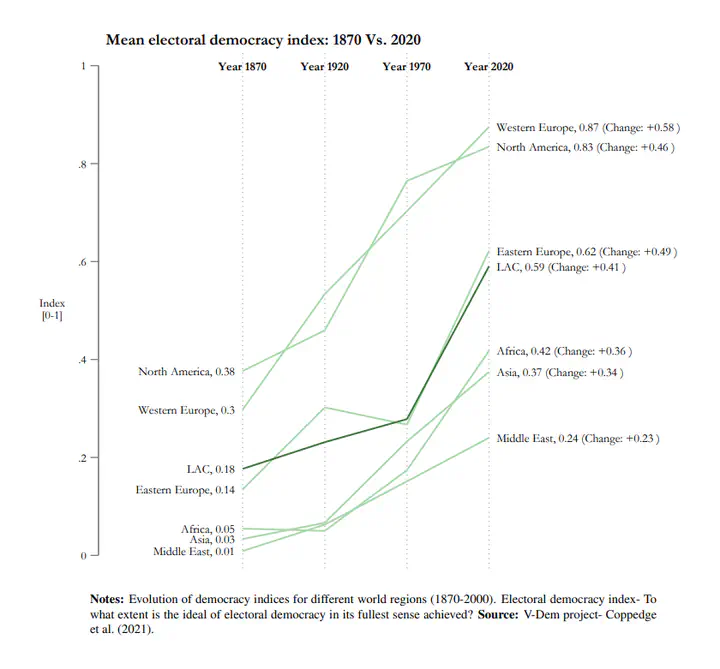The Interaction of Economic and Political Inequality in Latin America

Abstract
We investigate how economic inequality can persist in Latin America in the context of visible falls in political inequality in the last decades. Using data from Colombia, we focus on a critical facet of democratization - the entry of new politicians. We show that initial levels of inequality play a significant role in local policy outcomes, such as in education, which can impact future inequality. A vicious circle emerges whereby policies that reduce inequality are less likely to be adopted and implemented in places with relatively high inequality. We present evidence consistent with the capture of new politicians and barriers to institution and state capacity building in relatively unequal places driving the results. Our results, therefore, help to reconcile the persistence of economic inequality with the new political context.